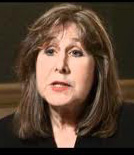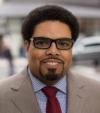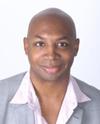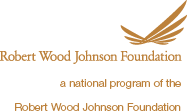Alumni Reflections
About the Program

"It’s hard for me to say how the Program hasn’t helped me because it’s been so pervasive. From the moment I got out of the Program I was seen as being someone who was very valuable. The Program is well known, and even though I was in the first cohort, Robert Wood Johnson was so well known that it really helped me to gain entry to a lot of areas that I wouldn’t have had access to other wise."
Beth Kosiak
Alumna | Cohort 1| Sociology
Watch Alumni Hahrie Han (Cohort 16| Political Science), Kurt Lavetti (Cohort 18| Economics), Rashawn Ray (Cohort 17| Sociology), Boris Shor (Cohort 18| Political Science), Tom Burke (Cohort 8| Political Science) and Vincent Hutchings (Cohort 7| Political Science) speak about the Program.
Alumni Speak
How has being a Program Scholar helped you in moving toward your professional goals?
 "Being able to interact with the political science scholars and sociology scholars here, as well as the other economics scholars has really complemented my training in a way which I wouldn’t necessarily have foreseen in coming into the Program."
"Being able to interact with the political science scholars and sociology scholars here, as well as the other economics scholars has really complemented my training in a way which I wouldn’t necessarily have foreseen in coming into the Program."
Benjamin Handel
Alumnus| Cohort 17| Economics
 "It’s given me an entirely new network both within political science and within the broader world of health policy. It’s given me access to people I think I wouldn’t have had access to before. It’s put me in touch with a broad intellectual community both within political science but also within sociology and economics. For a political scientist like myself, it’s created opportunities in Washington D.C. as well."
"It’s given me an entirely new network both within political science and within the broader world of health policy. It’s given me access to people I think I wouldn’t have had access to before. It’s put me in touch with a broad intellectual community both within political science but also within sociology and economics. For a political scientist like myself, it’s created opportunities in Washington D.C. as well."
Robert Saldin
Alumnus| Cohort 17| Political Science
Watch Alumni Christopher Bail (Cohort 18| Sociology), Brigham Frandsen (Cohort 17| Economics), and Jamilla Michener (Cohort 18| Political Science) speak about how the Program helped move them toward professional goals.
Are there any features or experiences in the Program that you have had that stand out as particularly important or meaningful?
 "Since I started interviewing for the position as a Scholar all the people that I have met are not only already accomplished scholars but also people who are very serious about the wellbeing of Americans. They are very committed to doing the right thing."
"Since I started interviewing for the position as a Scholar all the people that I have met are not only already accomplished scholars but also people who are very serious about the wellbeing of Americans. They are very committed to doing the right thing."
Laura Lopez-Sanders
Alumna| Cohort 18| Sociology
 "It’s been a really great opportunity to interact both with the scholars in my own discipline but also the scholars in the other disciplines. I think we have learned a lot from each other. We all do very different work but we all have a common thread. We’re all interested in health policy and we’re able to learn a lot from each other about different ways of thinking about health policy, different questions to ask and different ways of approaching those questions."
"It’s been a really great opportunity to interact both with the scholars in my own discipline but also the scholars in the other disciplines. I think we have learned a lot from each other. We all do very different work but we all have a common thread. We’re all interested in health policy and we’re able to learn a lot from each other about different ways of thinking about health policy, different questions to ask and different ways of approaching those questions."
Seth Freedman
Alumnus| Cohort 17| Economics
Watch Alumni Michael Sauder (Cohort 17| Sociology), C. Daniel Myers (Cohort 18| Political Science), and Laura Lopez-Sanders (Cohort 18| Sociology) speak about meaningful features of the Program.
What do you see as the greatest opportunities and challenges for improving health and health care in the country today?
 "The two greatest challenges facing our health system today are cost and equity. First, is the issue of increasing costs in health care and the fact that the cost is growing exponentially each year. Second are issues of equity. We have big disparities both along race and class lines in terms of who has access to high quality health care. Those two issues are obviously inter related. I think that my participation in the Program has really affected both my view of what the challenges are, but also my understanding of what the opportunities are that we have to fix them."
"The two greatest challenges facing our health system today are cost and equity. First, is the issue of increasing costs in health care and the fact that the cost is growing exponentially each year. Second are issues of equity. We have big disparities both along race and class lines in terms of who has access to high quality health care. Those two issues are obviously inter related. I think that my participation in the Program has really affected both my view of what the challenges are, but also my understanding of what the opportunities are that we have to fix them."
Hahrie Han
Alumni| Cohort 16| Political Science
 "Certainly getting health care spending or health care inflation into line with general inflation is an enormous challenge that faces us. But, it’s also at the same time an opportunity. I think few people would dispute that in the U.S. there is a substantial amount of health care spending that doesn’t generate a lot of return in terms of the actual health outcomes that it ideally would be providing."
"Certainly getting health care spending or health care inflation into line with general inflation is an enormous challenge that faces us. But, it’s also at the same time an opportunity. I think few people would dispute that in the U.S. there is a substantial amount of health care spending that doesn’t generate a lot of return in terms of the actual health outcomes that it ideally would be providing."
Michael Anderson
Alumni| Cohort 13| Economics
Watch Program Alumni:
- John Cawley(Cohort 6| Economics) Professor of Economics in the Department of Policy Analysis and Management and Economics at Cornell University,
- Daniel Dohan (Cohort 4| Sociology) Associate Professor in the Phillip R. Lee Institute for Health Policy Studies & Department of Anthropology, History and Social Science at UC San Francisco,
- Chiquita Collins (Cohort 6| Sociology) Associate Dean for Diversity and Cultural Competence in the School of Medicine at Johns Hopkins University,
- Rogan Kersh (Cohort 5| Political Science) Provost at Wake Forest University,
- Darrick Hamilton (Cohort 8| Economics) Associate Professor in the Milano – The New School for Management and Urban Policy at The New School, and
- Daniel Carpenter (Cohort 5| Political Science) Allie S. Freed Professor of Government at Harvard University speak about health care challenges in the United States.
Alumni Tell Their Stories
Click on Photos to Hear More Stories
(From Left to Right)
- Mireille Jacobson (Cohort 11| Economics) tells about her journey from labor economics to health economics.
- Laura Lopez-Sanders (Cohort 18| Sociology) tells what attracted her to the Program.
- Thomas Burke (Cohort 8| Political Science) tells about meeting a collaborator within the Program and intellectual recharge.
- Tiffany Joseph (Cohort 18| Sociology) tells a story of how health shaped her dissertation.
Click on Photos to Hear More Stories
(From Left to Right)
- Paula Lantz (Cohort 1| Sociology) tells the effects of her multi-year experience with the Program.
- Christopher Bonastia (Cohort 8| Sociology) tells about his change in perspective from prior to and after the Program.
- Beth Kosiak (Cohort 1| Sociology) tells about the impact of the interdisciplinary nature of the Program.
- Hahrie Han (Cohort 16| Political Science) tells how the Program helped her apply policial science theories to practical problems in health.
Alumni Experiences
 Darrick C. Hamilton
Darrick C. Hamilton
Alumni| Cohort 8| Economics
Alumni Reference:
Darrick C. Hamilton
"When I joined the Program, I was fortunate to have been offered a deferred tenure-track faculty position in economics. However, upon leaving the Program, because of a regional preference, I conducted a search for an assistant professor position in the New York metropolitan area and decided that the best fit for me was at Milano-The New School for Management and Urban Policy, where I am currently an assistant professor of economics and urban and health policy. As an applied microeconomist who examines racial and ethnic inequality, a great deal of my teaching, research and service has been directed toward the measurement of inequality, and the analysis of the causes, consequences and remedies associated with these inequalities. The Program afforded me the time and resources, as well as a network of advocates and advisors, to enhance my career opportunities while subsequently helping me to become a better educator and scholar.
My experience during the Program in learning from and collaborating with colleagues of varying experiences and norms helped me to become successful in developing a balanced and appropriate course curriculum that challenges, motivates and stimulates a diverse pool of students with varying experiences and norms. My experience in the Program also helped me to contribute more directly to the development of students by serving as an advisor, mentor and dissertation committee member. Moreover, I am now able to expose students to research and ideas that they may not otherwise be exposed to in their normal course of disciplinary studies. In addition, my development as an effective teacher and mentor has enabled me to think, teach and conduct research using theories and tools from a variety of disciplinary perspectives while increasing the breadth of my work concerning race, ethnicity, poverty, and health policy.
Thanks in large part to my training as a RWJF Scholar, I have made contributions to the economics and policy fields, as evidenced by peer-reviewed publications, book chapters in edited volumes, editorials, funded research, presentations, symposia, service to professional organizations, and appearances in the media. My work has examined inequality in multiple arenas, including education, employment, health, home ownership, marriage, and wages. Since these arenas are likely to influence and be influenced by one another, my broad examination of all of them has provided me with a more complete depiction of inequality. Moreover, I obtained this broad understanding without sacrificing rigor or depth. A great deal of my understanding was developed during my time as a Scholar.
I currently serve as a co-Associate Director of the American Economic Association Summer Training and Minority Fellowship Program, which is charged with the task of increasing the number of minority scholars entering and completing doctoral programs in economics. I believe that my involvement in this effort was greatly influenced by my time in the Scholars Program. The Program put me on my professional development path and augmented my economics training with insights from other disciplines. I continue to expand my knowledge base in order to grow as a scholar."
DARRICK HAMILTON, Ph.D.
Assistant Professor of Economics, and Urban and Health Policy
Milano-The New School for Management and Urban Policy
New York, NY
 Mark Q. Sawyer
Mark Q. Sawyer
Alumni| Cohort 10| Political Science
"I was a fourth-year faculty member when I applied to the Program. It was my second time applying. I had known several previous fellows and all had had a positive experience in the Program. I cannot overemphasize how much the Program helped me. In my fourth year at my home institution I was buried with responsibilities. I was in two units, I had several graduate students and, as a minority faculty member, mentoring and committee duties had become overwhelming. I needed the time to focus on my work. In fact, I was so stressed that my health had begun to suffer.
The fellowship came just in time. I had a lot of projects in progress but not enough had been completed. The fellowship and the Berkeley site were a perfect place to complete them, and to work, think, and really focus on working with ideas. It was my most productive period. In my first year, I found learning about the health care system not only interesting but stimulating. The interdisciplinary nature of the seminars challenged me to think in new ways about my own work. Further, I had the most precious commodity, time.
In the early part of my first year, I completed a revision of my book manuscript and several articles. The program and mentors nurtured my existing research but also encouraged new possibilities. I began to home in on an RWJ project but also continued my own research and completed some new articles that I got feedback on from my colleagues in the Program. It was an incredibly supportive environment that did not get in the way of me completing my work.
The time was intellectually stimulating, and while it may seem silly, I worked on my health and fitness as a means of relaxation. In my first year, after hearing about the relationship between health behaviors and outcomes, I was able to lose over 50 pounds that I have largely maintained since my time in the Program. Having been overwhelmed by the initial push and demand of being a faculty member, the Program gave me a chance to reconnect with my work and develop a healthier balance between taking care of business and taking care of me.
By the end of my first year, my book had been accepted, several R&Rs had been turned around and I was able to submit a number of new articles. After the wonderful experience presenting my first-year research at the Program’s Aspen meeting, I consulted with my chair and decided to go up for tenure early in my fifth year.
While tenure is always stressful, the Program and my cohort were always supportive. I kept my work going and also had time to apply to several jobs. I continued my RWJ work, which helped immensely as it represented progress toward a second project and a signal of my standing in the discipline. I received several tenure offers that year and ultimately was granted tenure and remained at my home institution. The Program made that all possible.
I returned to UCLA refreshed and having completed a solid body of work. I also had a new network that has been very valuable. RWJ fellows and people involved with the Program are always helpful and really care to help you if you need advice or want to understand how to formulate research, conduct a job search or any other important aspect of participating in the Program. My view of research has also expanded. Health presents infinite opportunities to connect with political science and expand resources. I cannot overstate how much the Program has benefited my career and me personally."
MARK Q. SAWYER, Ph.D.
Associate Professor, Department of Political Science,
Bunche Center for African American Studies, and
Director, Center for the Study of Race, Ethnicity and Politics
University of California, Los Angeles
Life After the Program
Vincent L. Hutchings, a professor in the Department of Political Science at the University of Michigan, is continuing research initiated at the former Yale program on how campaign communications can subtly prime voters' racial and other group-based attitudes and subsequently affect their political decisions. His wider interests include public opinion, elections, voting behavior, and African American politics. Hutchings' work has appeared in the American Sociological Review, the American Political Science Review, the Journal of Politics, and Public Opinion Quarterly. He has received multiple grants from the National Science Foundation and, along with Gary Segura and Simon Jackman at Stanford University, he is co-principal investigator for the American National Election Study (ANES). Hutchings was elected to the American Academy of Arts and Sciences in 2012.
Kelly J Devers, a senior fellow in the Health Policy Center at the Urban Institute, provides expertise in provider payment and competition, the organization and delivery of care, and their impacts on access, cost, and quality. Her current research focuses on the implementation of national and state health policy reforms, particularly as they relate to patient-centered medical homes (PCMHs), accountable care organizations (ACOs), and related provider payment changes. A former scholar at the Berkeley/UCSF program, Devers was an associate professor at Virginia Commonwealth University and held positions at the Center for Studying Health System Change and the Agency for Healthcare Research and Quality (AHRQ) prior to joining the Urban Institute. In 2006, she was a co-recipient of Academy Health’s HSR Impact Award.
John Cawley, a professor in the Departments of Policy Analysis and Management and Economics at Cornell University and co-director of the university’s Institute on Health Economics, Health Behaviors and Disparities, is continuing research initiated at the Michigan program on the economics of obesity, including the effect of body weight on labor market outcomes and on adolescent behavior. He received the 2005 John D. Thompson Prize for Young Investigators from the Association of University Programs in Health Administration for his contributions to the research literature in the field of health economics and the economics of obesity. Cawley also has served on national academic commissions related to the prevention of obesity, convened by the Institute of Medicine, the U.S. Food and Drug Administration and the Centers for Disease Control and Prevention. In fall 2012, he will begin serving a term on the program’s national advisory committee.
Paula M. Lantz is an Associate Dean for Research and Policy Engagement and professor of public policy at the University of Michigan Gerald R. Ford School of Public Policy. She was previously professor and chair of the Department of Health Policy at George Washington University School of Public Health and Health Services. Her research on social disparities in health status over the life course has expanded beyond its inception at the Michigan program. Her research interests also include health policy related to clinical preventive services, and the role of medical care versus other resources in producing population health. Her recent work has been published in the American Journal of Public Health, International Journal of Press/Politics, and Journal of Health Politics, Policy and Law. Lantz served as the Michigan program site director from 2002-2011.
Daniel P. Carpenter, Allie S. Freed Professor of Government and director of the Center for American Political Studies at Harvard University, is continuing research begun while he was in the Michigan program in complex administrative organizations that operate in the health policy domain. He is conducting historical, formal and statistical studies of FDA drug approval, pharmaceutical markets and public attention to disease. Carpenter received a Robert Wood Johnson Foundation Investigator Award in Health Policy Research in 2004 for a project FDA regulation which recently was published as a book, Reputation and Power: Organizational Image and Pharmaceutical Regulation at the FDA (Princeton University Press, 2010). The book received the 2011 Allan Sharlin Memorial Award from the Social Science History Association. Carpenter recently served on the IOM Committee on Scientific Standards for Studies on Modified Risk Tobacco Products and on the IOM Committee on Understanding the Global Public Health Implications of Substandard, Falsified, and Counterfeit Medical Products.
David N. Pellow, a professor and Don A. Martindale Endowed Chair of Sociology at the University of Minnesota, has broadened his research on work, race and health,which he initiated while in the Berkeley/UCSF program, to include issues of environmental justice and social and health inequalities. Pellow has received several awards for his research publications. In 2010, he began serving a term on the program’s national advisory committee.
Jonathan B. Oberlander, a professor of social medicine in the School of Medicine, and a professor of health policy and management in the School of Global Public Health at the University of North Carolina at Chapel Hill, teaches health policy in the School of Medicine and the Department of Political Science. He continues research on Medicare politics, which he began in graduate school and expanded while in the Berkeley/UCSF program. Oberlander is the author of The Political Life of Medicare (University of Chicago Press, 2003) and was a visiting scholar at the Russell Sage Foundation during the 2008-2009 academic year. Recently, he authored a series of commentaries on the politics of health reform in the New England Journal of Medicine.
Reagan Baughman, an associate professor of economics in the Whittemore School of Business and Economics at the University of New Hampshire, conducted research on the effects of local labor markets on health insurance coverage for children while she was in the Michigan program. More recently, she has examined such issues as: the earned income tax credit and fertility; workforce needs to care for the nation’s aging population; and the differential impacts of public health insurance expansions at the local level. She spent the 2009–2010 academic year serving as a Visiting Fellow in the Congressional Budget Office in Washington, D.C
Quincy Thomas Stewart, an associate professor of sociology and faculty fellow in the Institute for Policy Research at Northwestern University, conducted research on racial disparities in mortality and on labeling bias in heart disease deaths while a scholar in the Michigan program. His current research focuses broadly on the social processes that create inequalities in socioeconomic status, health and mortality in the US and Africa. Since 2008, he has served as a program ambassador spokesperson for the Scholars program.
Harold A. Pollack is the Helen Ross Professor in the School of Social Service Administration and faculty chair of the Center for Health Administration Studies at the University of Chicago. He has expanded his research on birth outcomes and maternal health initiated while in the former Yale program, to include issues of substance abuse, HIV/AIDS prevention and child and infant health. Pollack has authored numerous op-eds and essays in the Washington Post, New York Times, Los Angeles Times, American Prospect and New Republic. In 2012, Pollack received a Robert Wood Johnson Foundation Investigator Award in Health Policy Research for a project, “Intellectual Disability and the American Medical Welfare State.”
Julia Lynch, an associate professor of political science at the University of Pennsylvania, is continuing work that she began while in the Harvard program on inequalities in access to health care, quality of care, and health outcomes. Her current research concerns the politics of inequality, social policy, and the economy in advanced industrialized democracies. In 2006, she received a Robert Wood Johnson Foundation Investigator Award in Health Policy Researchfor a project, “What’s Fair in Healthcare: Thinking with Americans about Health and Health Care Inequalities.”
William E. Encinosa, a senior economist in the Center for Delivery, Organization and Markets (CDOM) within the federal Agency for Healthcare Research and Quality (AHRQ), has for several years continued work on economic modeling of health care organizations that he initiated while in the Michigan program. His current research includes the economics of medical errors, malpractice tort reform, the debt and asset holdings of the uninsured, the effects of direct-to-consumer advertising on drug prices, and bariatric surgery for the obese. In 2007, he received the AHRQ Director’s Award for Excellence and, in 2009, received the John M. Eisenberg Article-of-the-Year Award in health services research from AcademyHealth for "The Impact of Medical Errors on 90-Day Costs and Outcomes."








